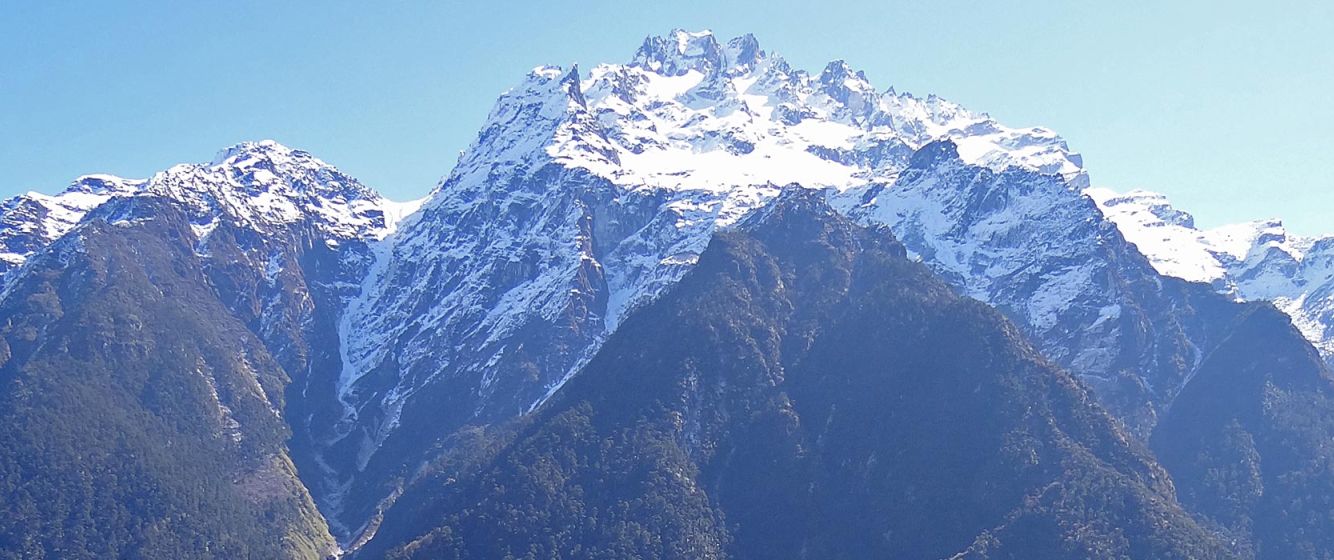Ruins, Revival(s) and Resources
Asian borderlands create spaces that induce dedicated livelihood strategies, inspire self-definition on both individual and collective scales, and allow for specific regimes of resource extraction. Borderlands in Asia tend to be peripheral to the centres of state power, while they are at the same time a prime locus for the enactment and realisation of state authority. Across Asia borderlands are experiencing a dual connectivity linking spaces across borders as well as to the economic and political heartlands of the states that claim them. This conference aims to focus attention on the generative and productive capacity of border spaces, which is urgently in need of being addressed.
Remnants of the past, both material as well as immaterial ruins , constitute heritages that continue to affect livelihoods across Asian borderlands. Increasingly, borderlands witness a surge in religious, cultural, linguistic, and ideological revival(s) , where the past is perceived as a resource for securing community futures. Whether through the bottom-up claims of marginalized communities or top-down state processes of recognition, designations of cultural heritage have become arenas of contestation where varied actors seek to reframe histories. The past and present of borderlands are intimately linked to resource extraction. Often, the presence of resources has been instrumental in producing borders and borderlands, and been conducive to the production of space, territory, and demography. As resource extraction in borderlands intensifies, it is increasingly bound up in violent conflict and military occupation.
For this upcoming 6th Asian Borderlands conference in Bishkek, we invite panels and papers that address the following questions: How are borderlands in Asia creating alternative spaces for heritages, self-definition and the extraction of resources? How can these cases serve to rethink social theories of various kind?
- Ruins: In which ways do the legacies of former state rule, of conflict or environmental hazards – abandoned infrastructures such as roads, irrigation systems or border installations, decaying cultural and religious heritage or historically informed imaginations of precarity and superiority, cohesion and otherness – play out in the identity-formation and socio-economic strategies of borderland populations? How (and with which effect) do these legacies, but also ‘re-discovered’ legal frameworks and maps, become instrumental for the invention, enforcement, opening and shifting of borders in current state politics?
- Revivals: How are specific cultural, religious, and linguistic practices and performances harnessed to make claims about identity, belonging, and entitlement? How do these new forms of expression embody continuity with the past as well as its transformation? How do ideological trajectories such as communism and democracy circulate as global discourses, which may be localized in specific borderland contexts to revive political participation and lead to new forms of mobilization? With these questions, we solicit panels that attend to the temporal and spatial dynamics of revival in relation to our other themes of ruins and resources.
- Resources: We seek panels analysing conventional resources from land to timber, from crops to rare species, from valuable minerals to bio-prospects. Furthermore, as borderlands become sites for intensified resource extraction, exploration, and transit, they are also sites for imagining resources in different ways. They are sites where human resources arrive in and depart from borderlands as labourers but also as bureaucrats, soldiers, professionals, students, and athletes. They are sites that generate manufacturing and agricultural resources through factories and export processing zones. And they are sites that produce revenue for state and non-state actors in enclaves of pleasure targeting tourists, settlers, and mobile professionals.We are pleased to announce that Dr Madeleine Reeves (senior lecturer in Social Anthropology at the University of Manchester and Editor of Central Asian Survey) will give a Keynote Speech at the conference.
Convenors
- Duncan McDuie-Ra, University of New South Wales, Australia
- Erik de Maaker, Leiden University, the Netherlands
- Henryk Alff, Leibniz Centre for Tropical Marine Research, Germany
- Svetlana Jacquesson, American University of Central Asia, Kyrgyzstan
- Tina Harris, University of Amsterdam, the Netherlands
- Willem van Schendel, University of Amsterdam, the Netherlands
Organization
The conference is organized by the American University of Central Asia; International Institute for Asian Studies and the Asian Borderlands Research Network (ABRN).
American University of Central Asia
7/6, Аалы Токомбаев
Bishkek
Kyrgyzstan
